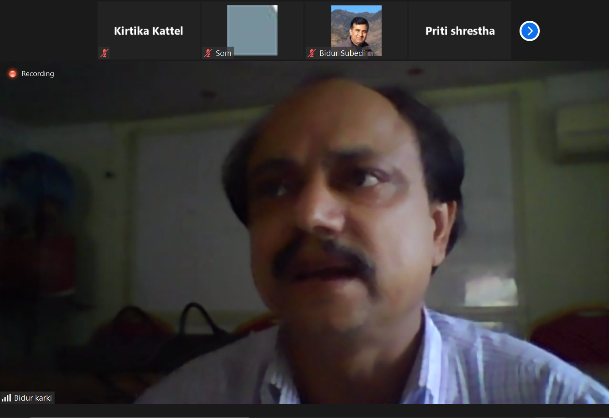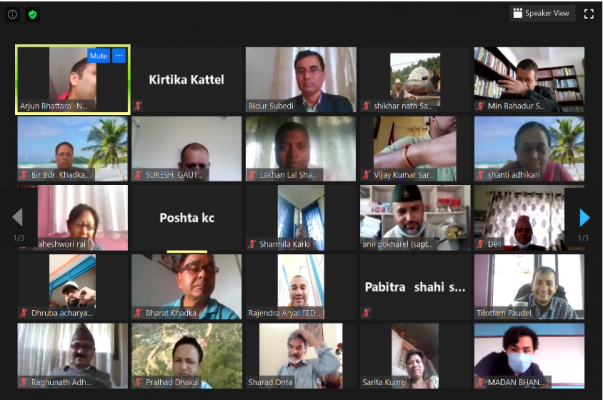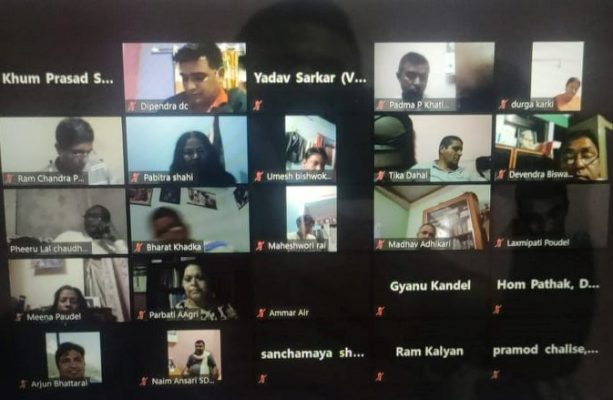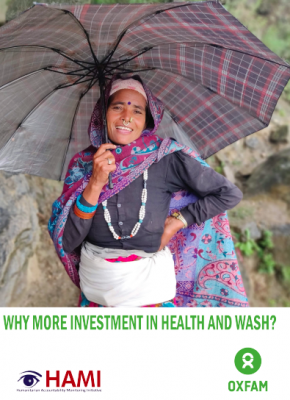21st July 2020
National Alliance for Human Rights and Social Justice (Human Rights Alliance) organized a meeting on 21st July 2020, on zoom online platform in the subject ‘Informal Sector and Effects of COVID-19.’ The meeting was hosted by Mr. Bidur Subedi from Human Rights alliance and chaired by Mr. Samir Nepal, Senior Vice President of Human Rights Alliance. The meeting was concluded with the representatives from civil society organizations, Trade Union organizations and from local government offices. The agenda of the meeting was to discuss about the situation of workers in the informal sector and the impact of COVID-19 on them.
Due to the unique nature of the pandemic, there are no pre-existing mechanisms to deal with the issue. Hence, the discussion was organized in order to identify the major concerns and contribute in policy advocacy by identifying probable solutions. With over 45 participants representing the civil society, trade union and local government, the meeting was successful in identifying some of the major problems faced by workers in the informal sector because of the COVID pandemic. Some of the keynote speakers Mr.Bidur Karki, Vice-President of GEFONT and Mr. Jitram Lama, President of NGO Federation reaffirmed that the informal sector is the most affected sector in Nepal and daily wage workers among them are the worst affected among them. Mr. Tejendra Jung Karkee, Vice President of Nepal Trade Union Congress and Advisor to ILO stated that the initiatives at local level are the most important in developing effective and long-term solutions. He stated that utilizing the social security fund could be one probable solution.

The session organized by Human Rights Alliance was successful in identifying some of the major problems faced by workers in the informal sector because of the COVID-19 pandemic. The speakers and presenters identified some of the legitimate concerns of workers in different categories of informal sector. Workers in the informal sectors such as construction, tourism, home based sector, domestic sector, etc. are the most severely affected. The forum finally agreed upon a set of recommendations to move ahead. It was agreed that a robust follow-up system and monitoring mechanism is necessary, a system of proper record keeping and documentation at the local level needs to be developed, and necessary institutional mechanisms and proper legal procedure needs to be developed in order to facilitate the local governments to take desired actions at the local level. The issues raised and the feedback received from the forum speakers and participants will be crucial in shaping the future course and strategy in policy advocacy to mitigate the effects of the COVID-19 pandemic.

Other key speakers in the dialogue were Dr. Padma Prasad Khatiwada, Vice-Chairman of Social Welfare Council, Mr. Meetra Prasad Ghimire, Secretary General of Solid Waste Management Association of Nepal (SWMAN), Dr. Sarba Raj Khadka, Ms. Juna Basnet, Deputy Mayor of Suryabinayak Municipality, Mr. Chandra Sagar Lama, President of GEFONT and Mr. Amar Thapa, Chairman of Kathekhola Rural Municipality, Baglung.



